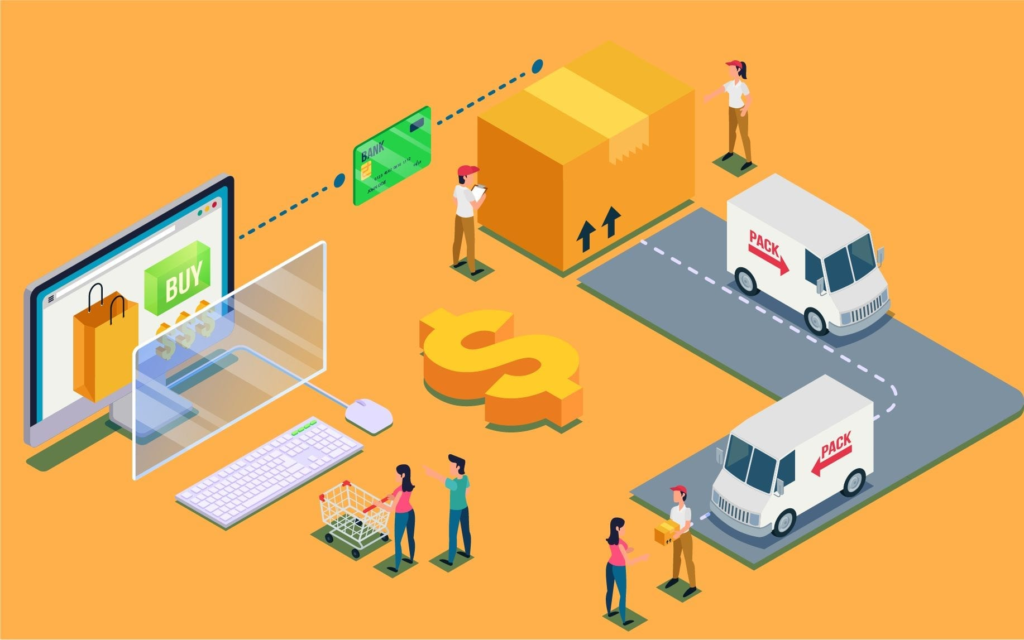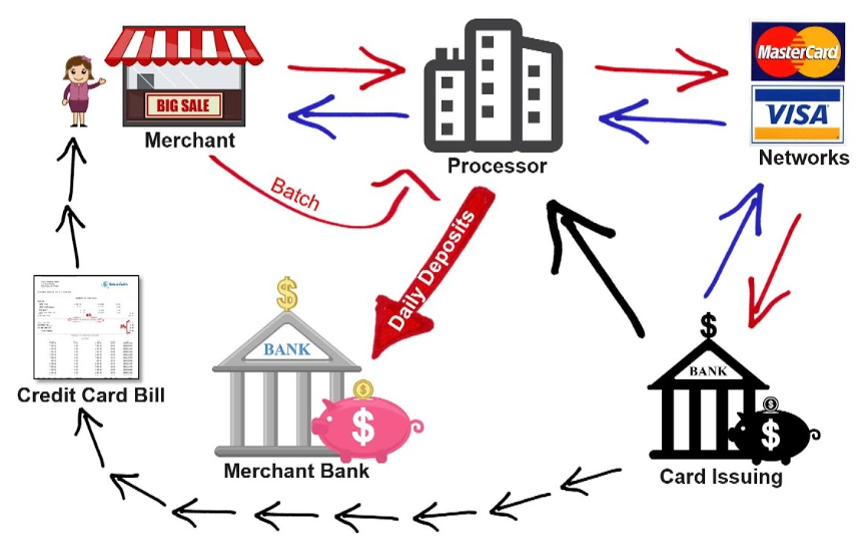Author : Annu Chauhan
Date : 23-08-2023
In the digital age, where online transactions have become the norm, an efficient and also secure Payment Processing for Merchants is essential. Whether you’re running a small e-commerce store or a large enterprise, mastering the intricacies of payment processing is vital to ensuring smooth transactions and a satisfied customer base. In this article, we’ll explore the world of payment processing for merchants, delving into its importance, the challenges it presents, and also the strategies for a seamless experience.
1. Understanding Payment Processing
Payment processing is the backbone of every online transaction. It involves the steps taken to complete a payment, from the moment a customer initiates a purchase to the point where funds are transferred from their account to the merchant’s. The process encompasses authorization, authentication, also settlement, ensuring that sensitive payment information is securely transmitted.

2. Importance of Efficient Payment Processing
Efficient payment processing isn’t just about facilitating transactions; it’s about enhancing the customer experience. In a fast-paced digital world, customers expect quick also hassle-free transactions. Slow or unreliable payment processing can lead to abandoned carts and dissatisfied customers.
3. Challenges in Payment Processing
The world of payment processing isn’t without its challenges. Security concerns, fraud prevention, also regulatory compliance are constant hurdles that merchants must overcome. Striking the right balance between security also convenience is crucial.
4. The Role of Payment Gateways
Payment gateways act as bridges between merchants also financial institutions. They encrypt sensitive data, authenticate transactions, also ensure seamless communication between all parties involved. Choosing the right payment gateway can significantly impact transaction speed and security.
5. Types of Payment Methods
Merchants must cater to various customer preferences when it comes to payment methods. Credit also debit cards, digital wallets, bank transfers, also cryptocurrencies are just a few options available. Diversifying payment methods can also expand a merchant’s customer base.
6. Optimizing for Mobile Payments
With the rise of smartphones, mobile payments have gained immense popularity. Merchants need to optimize their platforms for mobile users, offering a user-friendly experience that simplifies the checkout process.
7. Payment Processing Fees
Merchants often face fees associated with payment processing. These fees can vary based on the payment method used, the volume of transactions, and also the provider chosen. It’s essential for merchants to understand and factor in these costs when setting prices.
8. Strategies for Seamless Payment Processing
a. Streamlined Checkout Process: Minimize the number of steps required to complete a purchase. A lengthy checkout process increases the chances of cart abandonment.
b. Real-time Analytics: Utilize analytics to monitor transaction trends, identify issues, and make data-driven decisions to enhance the payment process.
c. Automated Recurring Billing: For subscription-based businesses, automated recurring billing ensures timely payments and convenience for customers.
d. Security Measures: Implement robust security measures such as encryption, tokenization, and two-factor authentication to safeguard customer data.
9. Enhancing Customer Trust
Transparency in payment processing enhances customer trust. Display security badges, offer clear refund and return policies, and provide excellent customer support to instill confidence in your payment system.
10. Navigating Regulatory Compliance
Adhering to regulatory standards is a non-negotiable aspect of payment processing. Different regions and industries have varying compliance requirements. Merchants must stay updated on these regulations to avoid legal complications and ensure a smooth payment experience for customers.
11. The Evolution of Payment Technologies
Payment processing has come a long way from traditional cash transactions to contactless payments and digital wallets. Staying abreast of emerging payment technologies is crucial for merchants aiming to provide modern, convenient options for their customers.
12. Balancing User Experience with Security
While security is paramount, it shouldn’t come at the cost of a seamless user experience. Cumbersome security measures can frustrate customers. Striking the right balance between robust security and user-friendly interactions is an ongoing challenge.
13. The Global Landscape of Payment Processing
In a globalized market, merchants often cater to an international customer base. Understanding currency conversion, cross-border fees, and different payment preferences is essential for ensuring a smooth payment process across borders.
14. Future Trends in Payment Processing
The payment processing landscape continues to evolve rapidly. AI-driven fraud detection, biometric authentication, and the integration of Internet of Things (IoT) devices are some of the trends that will shape the future of payment processing.
In conclusion, payment processing is a pivotal aspect of modern commerce. Merchants who master the art of seamless payment processing stand to gain customer trust, loyalty, and increased conversions. By understanding the nuances, challenges, and strategies involved, merchants can create an efficient and secure payment ecosystem that benefits both their business and their customers.
15. Conclusion
In the world of e-commerce, a seamless and secure payment processing system is the linchpin of success. By understanding the intricacies, challenges, and best practices, merchants can create an environment where transactions are smooth, customers are satisfied, and trust is paramount.

FAQs
- Q: Can I manually process payments for my online store?
A: While possible, manual processing can be time-consuming and error-prone. It’s advisable to use automated payment systems. - Q: How can I prevent fraudulent transactions?
A: Implement fraud detection tools, monitor transaction patterns, and use verification processes like CVV and address verification. - Q: What role do merchant accounts play in payment processing?
A: Merchant accounts facilitate the transfer of funds from a customer’s account to the merchant’s account after a successful transaction. - Q: Is PCI DSS compliance mandatory for merchants?
A: Yes, Payment Card Industry Data Security Standard (PCI DSS) compliance is mandatory for merchants that process credit card transactions. - Q: How can I choose the right payment gateway for my business?
A: Consider factors such as transaction fees, supported payment methods, security features, and integration options when choosing a payment gateway.





